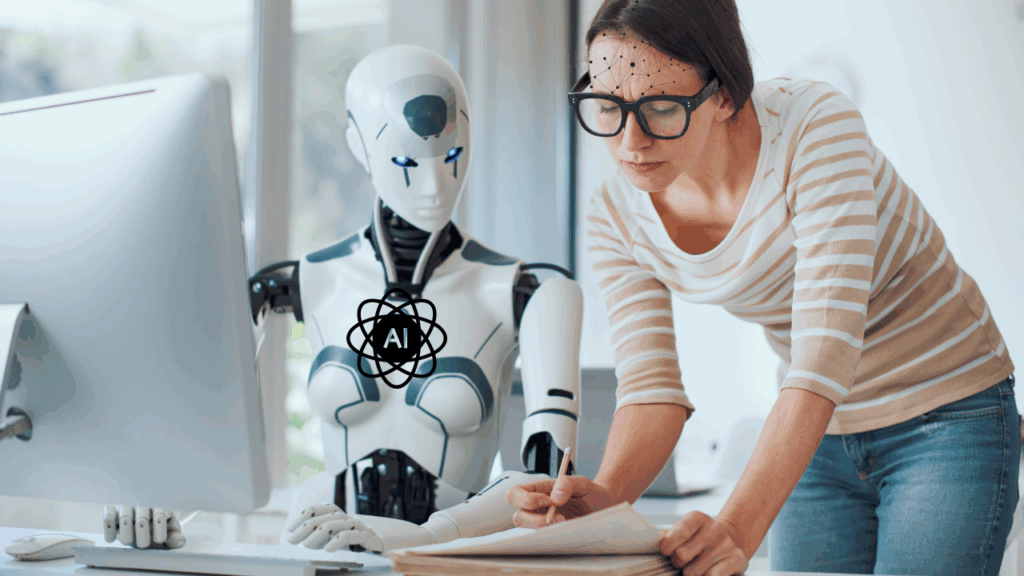Is AI in healthcare a source of relief, or does it risk losing essential human touch?
We are living in a world that is constantly changing. Each day brings a fresh start, filled with new opportunities and possibilities. Technological evolution is at its peak, helping us connect, innovate, and solve complex problems. With advancements in areas like – healthcare, we can enhance our lives and address challenges more effectively than ever before. Embracing this change empowers us to create a brighter future.
The Promising Role of AI in Healthcare
Mr. Davinder Bhasin, founder of One Health Assist, supports AI trend in Healthcare saying, “Artificial Intelligence is revolutionising the healthcare industry by enhancing patient outcomes and optimising operational efficiency. From predictive analytics that allows for early intervention to distinct preventive care plans based on individual patient data, AI empowers healthcare providers to deliver more effective and personalised care.”
Balancing Technology with Human Touch
Yes, AI is the future of healthcare. It offers unparalleled efficiency in data analysis, facilitates remote monitoring for proactive care, and enables real-time insights that improve decision-making. AI helps patient engagement through personalised health management tools, making care more accessible.
However, while AI shows promise in healthcare, there are significant drawbacks to relying on it for patient care, especially concerning emotional support and human interaction. The human touch remains essential for empathy, understanding, and building trust, which are vital for effective healthcare delivery. Balancing AI advancements with the need for compassionate care is crucial in creating a holistic healthcare system.
Mr. Shubhang Tandon, Co-founder, Online Chikitsa Mitra comments that, “AI models are currently “black boxes,” making their outputs unpredictable. This unpredictability is particularly risky in healthcare, where consistency is crucial.”
He also mentions, “In mental health care, where preventing self-harm is vital, AI systems are not yet equipped to handle high-stakes interactions without human oversight. The use of AI in patient care raises concerns about the confidentiality of sensitive health information.”
Davinder underscores the drawbacks of relying on AI in patient care mentioning, “Patient care is inherently a human-centred experience, and AI, despite its capabilities cannot fully replicate the nuances of empathy, compassion, and personal connection. Over-reliance on AI may inadvertently diminish the essential human connection that is vital for healing and support during challenging times.”
Insights from Experts on AI and Patient Care
The inferences drawn by the experts validate that AI lacks the human touch in patient care, especially in mental health. AI can enhance the patient experience by handling routine tasks, allowing professionals to focus on meaningful interactions. It can provide personalised insights and support telehealth services while training providers in empathy. Using AI for initial assessments can streamline care, but human follow-up is essential to address complex emotional needs effectively.
Shubhang emphasises the importance of human involvement, saying, “AI can analyse data and assist in patient care, but it is crucial to ensure that healthcare remains a human-centered experience. Technology should complement our efforts, not replace the emotional intelligence and understanding that only a human can provide, especially in sensitive areas like mental health. Maintaining that human connection is vital for effective healing and support.”
Davinder concludes the topic by focusing that AI cannot be a replacement for the human touch but can be an enabler that empowers healthcare providers to deliver even more compassionate, informed, and effective care. By handling routine tasks and data-driven tasks such as diagnostics, treatment recommendations, and administrative processes, AI will allow healthcare professionals to dedicate more time for building strong, empathetic relationships with their patients.
AI holds great promise for transforming healthcare by improving efficiency and outcomes. However, it is crucial to recognise that the human touch is irreplaceable in fostering trust and empathy in patient relationships. By leveraging AI as a supportive resource, healthcare providers can enhance their ability to deliver compassionate care, ensuring that the emotional needs of patients remain a priority in the healing process.



